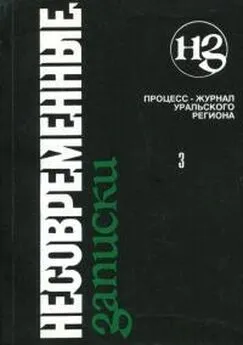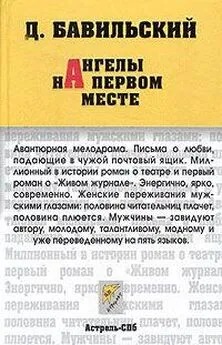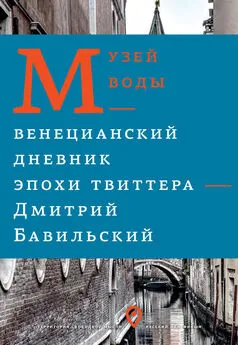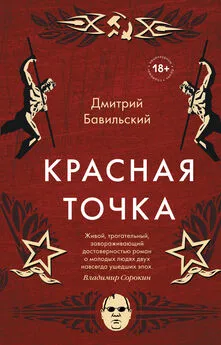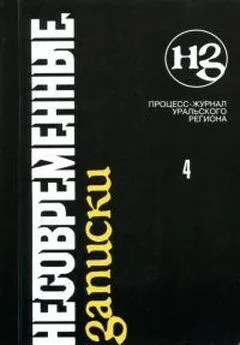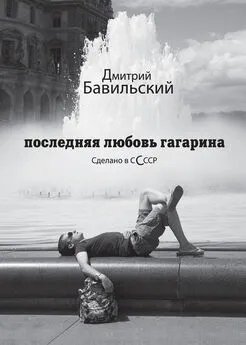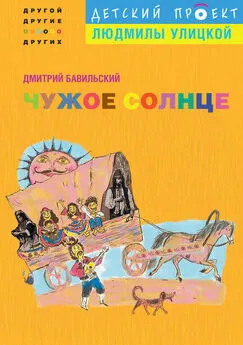Дмитрий Бавильский - Несовременные записки. Том 3
- Название:Несовременные записки. Том 3
- Автор:
- Жанр:
- Издательство:Фонд «Галерея», Фонд «Юрятин»
- Год:1996
- Город:[,б. м.]
- ISBN:5-87772-024-4
- Рейтинг:
- Избранное:Добавить в избранное
-
Отзывы:
-
Ваша оценка:
Дмитрий Бавильский - Несовременные записки. Том 3 краткое содержание
Несовременные записки. Том 3 - читать онлайн бесплатно полную версию (весь текст целиком)
Интервал:
Закладка:
'Never mind, sonny,' the father said. 'At home we've got a castle too.'
'I didn't see any,' the boy answered.
'It's just in an album, kittie. And we shall assemble it of cardboard.'
They went home, hand in hand again, warming each other and somehow equalizing their so different ages: clasping his father's palm the boy felt as if he was almost an adult man, "a traveller", whereas the man, with the child's hand in his, recalled that remote time when he too was five or so and was walking here together with his father who had died three months before the boy's birth. You were very good Dad, he said in his mind to the man who was lying now in the grave two miles away from here, and sighed — just like his son did some minutes ago after having said, You are very good, Daddy. What a bitch the fate is, the man thought, to deprive both of us of our fathers — me at the age of twenty-six, and him at only five. And no quarter at all.
The cardboard castle was in the album indeed where its coloured components were precisely contoured — and one had only to cut out its parts with scissors and rig them up. They began to do it at once. The boy worked diligently, just like out-of-doors recently, but, unlike in the forest, it was the man who supervised the process now. They cut bright-red serrated walls and towers with arrow-loops, a black drawbridge on paper chains, a dark-blue building of the castle itself and, at last, figures of armoured horsemen and multicoloured unmounted spear-carriers, sword-carriers and archers. After that the boy produced a box with tin soldiers in it from under a closet and undertook their attack on the castle which continued for good thirty minutes. It goes without saying that the defenders of the castle were fighting valiantly and at the end of battle smote the foe hip and thigh.
'It's a good castle,' the boy said wiping his brow, 'but it's not real.'
'Where's real, then?' his father asked. 'In the forest?'
'Yes, there… there it's real,' answered the boy gravely.
You are right, kiddy, the man said in his mind again: of course, this paper fort could never have become a citadel for us; but the glade on the ravine brink could have been the very place for our stronghold or for just a dwelling — could have been but for… too many buts, though, and the most essential but is your mummy who had given birth to you, similarly with the way another mummy had given the same good old thing to your favourite John Bonham. And still you are right, kiddy — the place you've chosen is real, indeed.
'Do you want to hear a story about one knight?' he asked his son.
'What night?'
'Not night, but knight — an armoured horseman, clear?'
'Oh, yes!' laughed the boy happily as he had understood the verbal trick. 'Such a funny thing, Daddy! A night and a knight, I mean.'
They sat on a sofa side by side, the proud valorous defenders of the cardboard castle and the slain tin soldiers all around them on the floor, and the man began his story about the knight, his deeds, his dearly beloved woman, and her death and resurrection. He stopped his narration soon, for his little one, fatigued by the walk in cold weather and the exerted battle for the paper citadel, fell asleep leaning on his father's side.
Next time they appeared on the left bank in a month. It was a hot July afternoon, and the old burg in the hollow was hazed with the bluish mass of immobile scorched air. They were walking along the same path, apparently going to their temporarily forsaken but not forgotten castle. Again, like a month ago, they plunged down to the bottom of the ravine, skipped over the almost dried brook and climbed the opposite brink of the gully. The boy remembered the way perfectly well, and even luxuriant growth of green grass didn't prevent him to define the place without any doubt.
'It's O.K., Daddy,' he said having examined the glade and found their masonry intact. 'Now let's play king, knight and enemies.'
The man was a king, the boy was a knight, and the pines around were their enemies. There were a lot of them — but the knight chopped off their heads with his magic sword and released the king who had been captured by the adversaries and had been waiting for death in prison. And they stood together after the fight which had been hard and victorious, hand in hand again — the tiny rescuer and the burly grateful rescuee: the knight and his king, without a queen. She was not remembered then, anyhow.
'I want to fly, Daddy. Fly me please, Daddy,' the boy asked softly, knowing that in any case his father would hear him, and would take him under his arms, and would throw him up as high as he can, and it would be a wonderful and at the same time a bit fearful thing, but there'd be nothing to be afraid of, for the father would never drop him on the ground but would always catch him with his strong hands.
The man embraced the boy, held him in his hug for some seconds, then tossed him up, caught him and tossed up again. The two hearts were palpitating with joy and delight beside each other; the knight's little heart was flying up, away from the big one of the king, and the next moment was returning under force of gravity, and God only knows which gravity was stronger then — that of the Earth or of the king's heart. And the last motion of the knight's heart was towards the king's — but not away from it.
'I am very hot, kittie,' the man said wiping his brow.
'Me too,' the boy responded.
'Let's go to the river then?'
'Of course!'
One can blaze a trail to the river in a million variations here — like any other way in this multidimensional space. The travellers chose a narrow path which soon led them to the river bank — not very high in that place but abrupt. The path wound between the brink of the bluff and a continuous wall of wooden fences behind houses and was intersected here and there by exposed on the ground powerful knotted roots of old spreading poplars. In some places the fences bent to the river side and hung over the path making it rather difficult to follow the way.
'Daddy, I am afraid!' the boy whined when they reached the point where the path entirely broke off for about three yards — there was only a section of a thick poplar root instead of it.
Under this peculiar bridge, at a depth of nearly seven feet, sharp stones were scattered.
'Don't, kiddy,' his father answered. Seizing the boy in his arms and leaning on the trunk of the poplar with his shoulders he carried the boy over the pit. Twisting his neck the boy looked down like spellbound not taking his eyes off the uneven wall of the bluff and seething waters of the river.
After a while the path broadened into a narrow but steadily widening flat sandy slip of the bank. The river here was not so swift as upstreams where they had come from, and looked pleasantly cool.
'May I undress, Daddy?' the boy asked.
'Of course,' the man answered. 'Take off your shorts and shirt and have a swim.'
'And you?'
'It's too shallow for me here. Go without me, boy, and don't be afraid. It's knee-deep here, so you won't drown even if you want.'
The boy, remaining in his pants only, ran into cool water of the river, dabbled there at will and then popped out into his father's embraces. It was repeated many times — the boy splattering in the water and then darting to his father to warm and dry in his hands so as in five minutes to enter the river again. It was wonderful — like baptism in the waters of the holy Jordan. And his wet cool body was holy too.
Then, getting tired of heat, they returned home, but at the end of the day went to the river again. That time they decided not to undertake an anchorage in their fancied pines-confined harbour but go the shortest possible way to the water, and chose another path which appeared to be wide and straight at the beginning but in some fifty feet away from the river turned suddenly aside and reduced into a sinuous and narrow trail winding among jungles of willows and nettle. The man picked up a stick to draw nettle blades and stems apart, but nonetheless, after they had got onto an open space, the boy felt his bare legs and arms stung. He was about to whine already, when his father took him in his arms for a second and said: 'That's all right, kiddy, don't you cry,' — and the boy smiled at him and promised: 'I shan't, Daddy'.
Having bypassed an abrupt meander of the river where it changed its direction from east to south at right angles they stopped before a huge black boulder towering some, seven feet above the stream and jutting out into it like a small peninsula. To be more exact, it consisted of the two adjacent stones — the farther from the land being larger and higher, and both together resembling two humps on a camel's back. Naturally, the boy expressed the desire to climb the boulder as soon as he had seen it.
'I want to get on top, Daddy!' he shouted and made a stir to dash at the stone.
'A moment, kiddy,' the man said grabbing the boy by his hand. 'Don't hurry up if you are not willing to fall into the river and get drowned.'
He jumped onto the smaller hump of the boulder and, taking the boy with his stretched hands, carried him over and got him by his side. 'Now stay here,' he said to him and in the same way repeated their two-stage ascension upon the bigger part of the rocky peninsula; having reached the very top of it he sat on its stone seat and got his son on his lap. The boy held his breath with delight. It was wonderful indeed — they were sitting now right above the dark whirling water, the side of the boulder adjacent to the rapids of the river being so abrupt that the two felt as if they were suspended somewhere in the air with no support beneath them at all.
'Daddy, why is this stone so big?' the boy asked.
'It's the part of a great rock. It broke off it a long time ago and fell into the river.'
'Is it heavy?'
'Yeah, it's very heavy.'
'But you can move it away from here, can't you, Daddy?'
'No, of course!' the man laughed and dishevelled the boy's hair. 'You need a big tractor at least to move this boulder even a single inch. And in any case…'
'What case, Dad?'
'I mean, where will you find a rope to drag this rock with? There's no rope which can bear such a terrible weight.'
'And crane?'
'A crane needs a rope too. Where will you get it?'
'It's a pity that there is no such a rope,' the boy said after a short pause, 'or I would have a look at what is under it. Do you know what is under?'
'No.'
'And have you seen this big stone before, Daddy?'
'Certainly, kiddy. We played a good deal of time here when we were boys.'
'How did you play?'
'Oh, in many different ways. Indians. Soldiers. Mountaineers. Did yea see those vertical stone rocks over there?' the man beckoned with his head somewhere backwards. 'There was time I was climbing them.'
'With your mother and father?'
'No, of course.'
'Why no?'
'Cause they would've never allowed me this.'
'Why?'
'Cause it's dangerous.'
'Why dangerous?'
'Cause I could have fallen and crashed.'
'Were you afraid to?'
'For the first time, yes. And then it had become just interesting.'
'You were like me then?'
'No, sonny. I was slightly older than you then. Eight, I believe. And you are five.'
'And your mummy and daddy didn't know about it?'
'No, they didn't.'
'And your mummy still doesn't know about it?'
'No, she doesn't.'
'And if I tell her about it now, she won't rate you?'
'I think, no. It was a great deal of time ago.'
There was a long silence. The boy got tired of sitting in one position and stirred suddenly in his father's hands.
Читать дальшеИнтервал:
Закладка:
